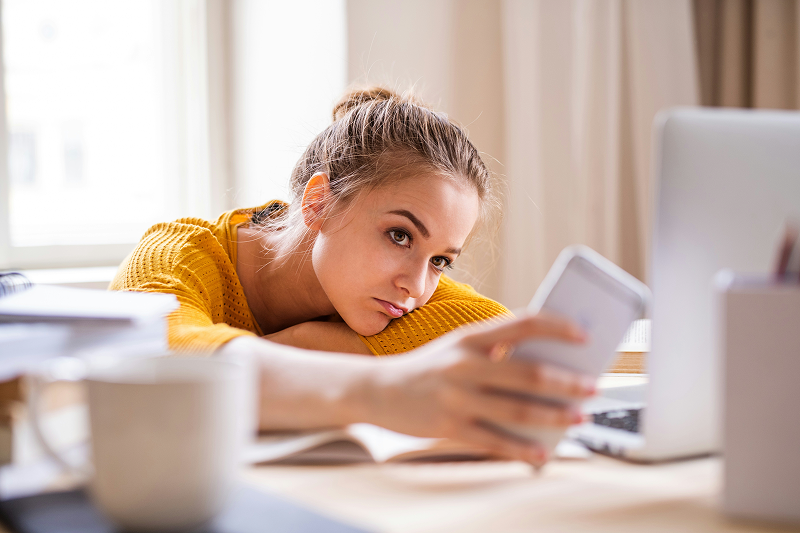
My son's usage of phone has reduced 64% per week according to Apple. I think it is fantastic to have Blackout...

My son's usage of phone has reduced 64% per week according to Apple. I think it is fantastic to have Blackout...
Blackout goes beyond removing social media and distractions.
Blackout works best when home and school work together. By setting up and taking an active role in managing your child’s time on their device, you can help create a safer and more positive school environment, where pupils socialise, focus and learn. Your involvement not only protects your child’s screen time, it also supports their academic progress, safeguards their wellbeing, and encourages healthier digital habits both in and out of school.
"44% of parents are concerned about the amount of time their children spend on electronic devices, rising to 50% of parents of secondary school children."
(ParentKind’s National Parent Survey 2025)

Algorithms quietly shape what you see, think, and believe.
Social media algorithms don’t just show your child content, they decide what they see. By learning their habits, platforms can trap them in a repetitive stream of material that may be harmful, extreme, or misleading.
Over time, this can distort reality, harm self-esteem, and reinforce unhealthy behaviours. That’s why it’s vital to help children question what they see, think critically, and understand that not everything in their feed is true or healthy.



What are family controls and why use them with Blackout?
Family controls (sometimes known as parental controls) are settings on your child’s device that allow you to manage and limit smart device use, such as blocking certain apps, setting time limits, or restricting access to specific websites.
When used alongside Blackout, they help create a consistent approach to healthy digital habits, in and out of school. This joined-up approach supports your child in developing healthy device habits they can carry with them now and into adulthood.
After school routines can play a significant role in shaping digital habits.
Open, honest conversations help them understand the benefits of balance and the risks of overuse, and gives them the confidence to talk about any content they might have seen that is upsetting or harmful.
Constant alerts from social media or group chats can increase anxiety, interrupt focus, and make it harder to switch off. Always having non-essential notifications turned off to reduce distraction, and silence all notifications after 9:00 PM to help your child relax and get better sleep.
Keeping phones out of reach at night removes the temptation to scroll during the night and supports healthy rest.
Setting clear limits together builds self-discipline and teaches them how to manage their own use. Involving them in the process gives them a sense of ownership and autonomy over their digital habits.
This area is to help you learn more about how phone and social media use can affect you, what you can do to stay in control, and where to go if you see anything online that upsets you or makes you feel unsafe. Don’t forget, your teachers, parents, and guardians are there for you to talk to. Make sure you reach out to them if you see anything that feels strange or makes you feel uncomfortable, and you might want to explore some of these resources together.